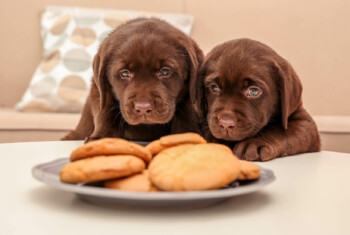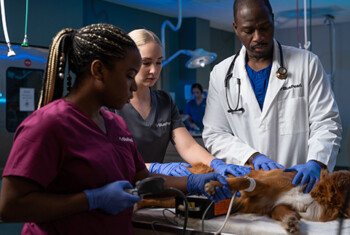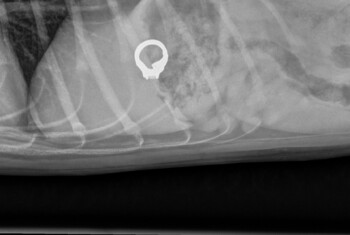ER patient visits on July 4 are 48% higher than an average day, according to new BluePearl data.
Every Fourth of July weekend people across the United States take part in outdoor festivities with family and friends. Whether this means grilling, watching a firework show, or swimming, it is important to keep pet safety in mind, as this weekend, above all others, is one of the busiest times of the year for emergency pet hospitals. In fact, the number of patients visiting BluePearl Specialty and Emergency Pet Hospitals for emergency care on July 4 is 48% higher than an average day. That is according to data compiled from BluePearl hospitals across the U.S. from 2016-2020.
To help ensure pets stay safe and panic-free this holiday weekend, BluePearl Pet Hospital is offering some important tips for pet owners.
- Keep pets secure indoors. Fireworks signal celebration, but to pets, these displays bring fear and disorientation; oftentimes leading them to do almost anything to find safety, even jump through glass windows, run into traffic or scale tall fences. These attempts to “escape” may lead to life-threatening injuries to the pet. Keep pets inside during firework displays and consider keeping them in an enclosed, quiet, and safe space. If you know your pet is sensitive to loud noises, have a discussion with your veterinarian about calming routines as well as medications for a more holistic approach.
- Look out for signs of heat stroke. Heatstroke is a serious threat to pets. Dogs and cats do not sweat, but instead cool themselves through respiratory measures – which are especially difficult to do in hot conditions. Signs of pet heat stroke include excessive panting, profuse salivation, glazed eyes or staring, anxiousness or restlessness, gums and tongue turning bright red or purple, confusion, trouble standing or walking, collapse or vomiting. Remember: Any breed and any age pet can get heatstroke. Limit time outside on hot days and always make sure you provide pets with shade, water, and a way to get back inside.
- Keep pet identification tags up-to-date and/or microchip. With holiday parties come guests, and with guests come ample opportunities for pets to escape through front and back doors. Be sure to have at least two up-to-date forms of pet identification on your pet, one of which could include a microchip. Speak to your veterinarian about the benefits of getting a microchip for your pet. If your pet is already microchipped, make sure that you have registered the chip with the most up-to-date contact information. This will ensure a speedy return home, should your pet become lost.
- Watch what is fed to your pet. Avoid feeding your pet and allowing others to feed your pet table scraps, especially food containing bones. Bones, despite bone size or the volume consumed, can result in an unexpected visit to a pet emergency room, as they can cause pets to choke or a gastrointestinal obstruction. Make sure guests are aware of your pet’s dietary restrictions, including allergies and food that is toxic to all pets, such as chocolate, xylitol, onions, apple cores, coffee, avocado, grapes/raisins, salt, tomatoes and yeast dough.
- Opt for pet-friendly bug repellents. Repellents used on humans are generally not approved for use on pets. Some flea and tick products that contain mosquito repellent, such as K9 Advantix (only for dogs), can be purchased over the counter. However, the most effective flea and tick products are typically prescribed by your veterinarian (e.g., Simple Guard or Vectra 3D, which are only for dogs). It’s important to remember that what is considered safe for dogs and humans may be toxic to cats. Avoid pyrethroid toxicity in cats by reading labels and staying clear of products that are marked “for dogs only.” DEET should never be applied on dogs or cats. This chemical is toxic when ingested, and dogs and cats may lick it off after application.
- Supervise pets while outdoors. Just as you would a child, make sure you supervise your pets while they are outdoors. With fireworks randomly going off throughout the weekend, it is easy for pets to panic, get lost or run into streets. Sticks and branches on the ground can also cause choking and severe mouth injuries to dogs. Also, remember, concrete or blacktop surfaces become painfully hot and can reach well over 100°F, leading to severe paw pad burns. If your dog swims a lot, their paw pads are at a greater risk of burning or cracking.
What may be fun for you may not be fun for your pet. If you are planning to attend a public gathering such as a parade, music venue or other event where heat, crowds and hot asphalt can lead to injury or worse, consider leaving your pet at home. By preparing and remaining vigilant, you can make sure your pet remains safe while still being able to celebrate and enjoy the festivities that the July Fourth weekend brings.
Most BluePearl Pet Hospitals are open 24 hours a day, seven days a week to provide advanced emergency care to pets. Find a local BluePearl Pet Hospital.


